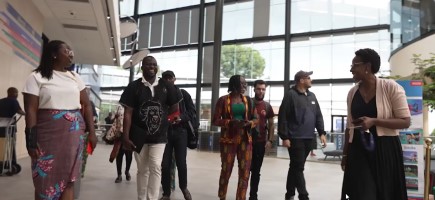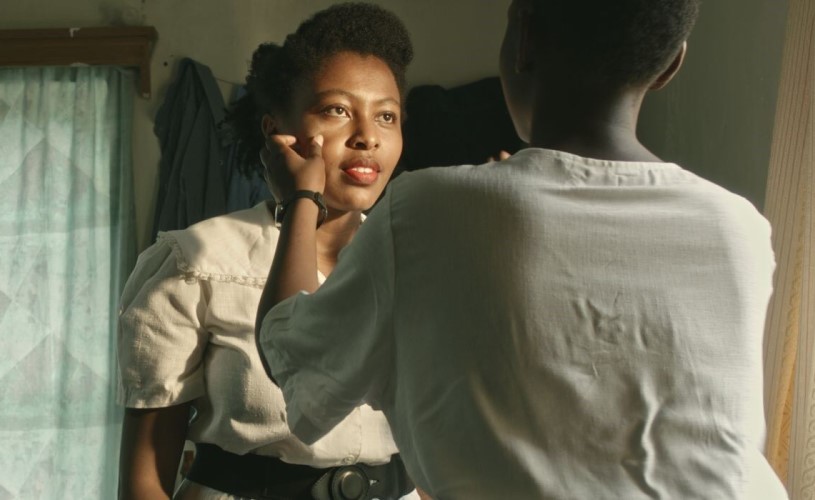
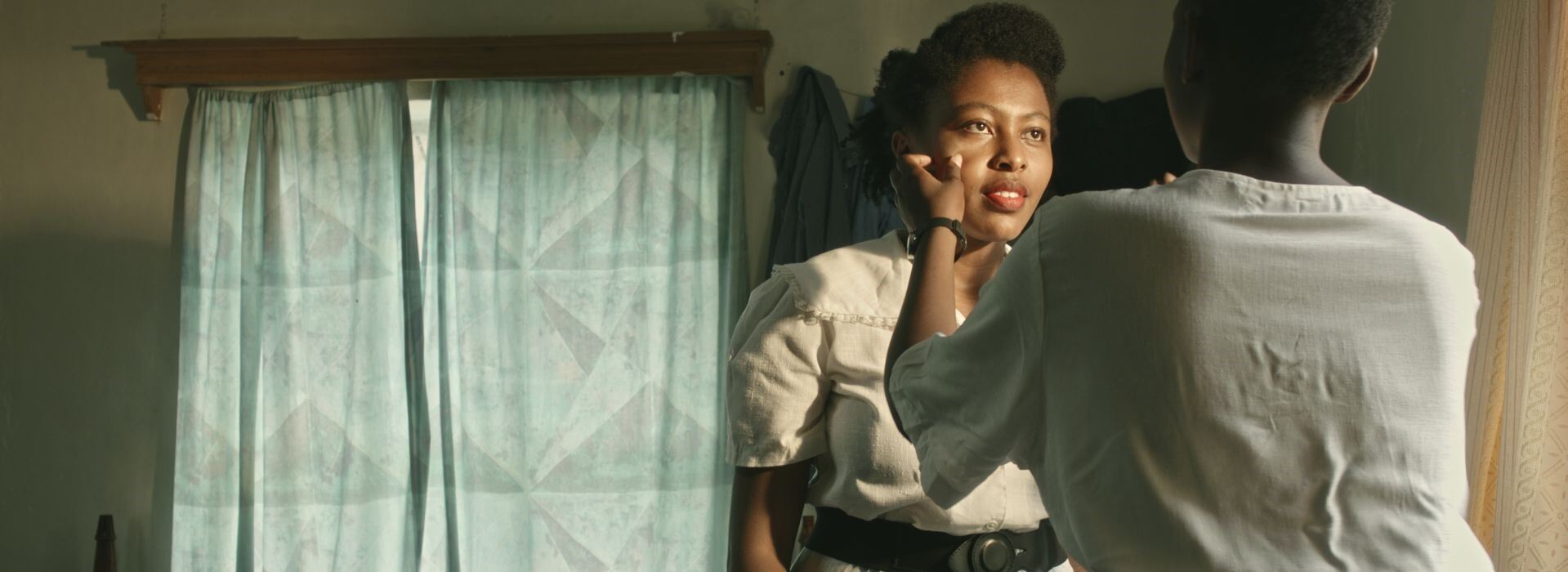
ECONOMIC DEVELOPMENT AND EMPLOYMENT: And action! Rwanda’s film industry takes off
In Rwanda and Kenya, films ‘Made in Africa’ are creating new jobs.
The Rwandan film ‘The Bride’ demonstrates how film promotion in Africa is creating jobs.
A young woman wants to be a doctor, but she is kidnapped and forced into ‘guturera’, a forced marriage. With her mystery film ‘The Bride’, Rwandan director Myriam U. Birara sheds light on a dark chapter in her country’s history. In the 1990s, women in Rwanda frequently disappeared, were forced into marriage and often raped. ‘I grew up asking myself how I would have dealt with this. Would I have been courageous? Rebellious? Or would I have conformed? These questions haunted me and led me to make this film,’ Birara says.
An entirely Rwandan film production
‘The Bride’ premièred at the Berlinale, making it the first Rwandan film ever to do so at a leading international film festival. This makes it the first film ever made entirely in Rwanda to premiere at a renowned international film festival: "The Bride" was not only shot in the country, but also produced from start to finish. to premiere at a renowned international film festival: "The Bride" was not only shot in Rwanda, but also produced from start to finish. In a post-production master class by Media Education Babelsberg, eight trainee filmmakers studied for half a year with East African and international trainers, including while working on ‘The Bride’.
One of the participants was film editor Beth Ahirwe. ‘The hands-on training played a pivotal role in shaping my career as an editor. This immersive experience provided me with a comprehensive understanding of the art of filmmaking.’
Today, Ahirwe and the other participants in the master class can make a living working on film productions and in other media professions. A gradually growing film industry in Rwanda is the result of cooperation between the state-owned Rwandan Film Office and the Deutsche Gesellschaft für Internationale Zusammenarbeit (GIZ) GmbH.
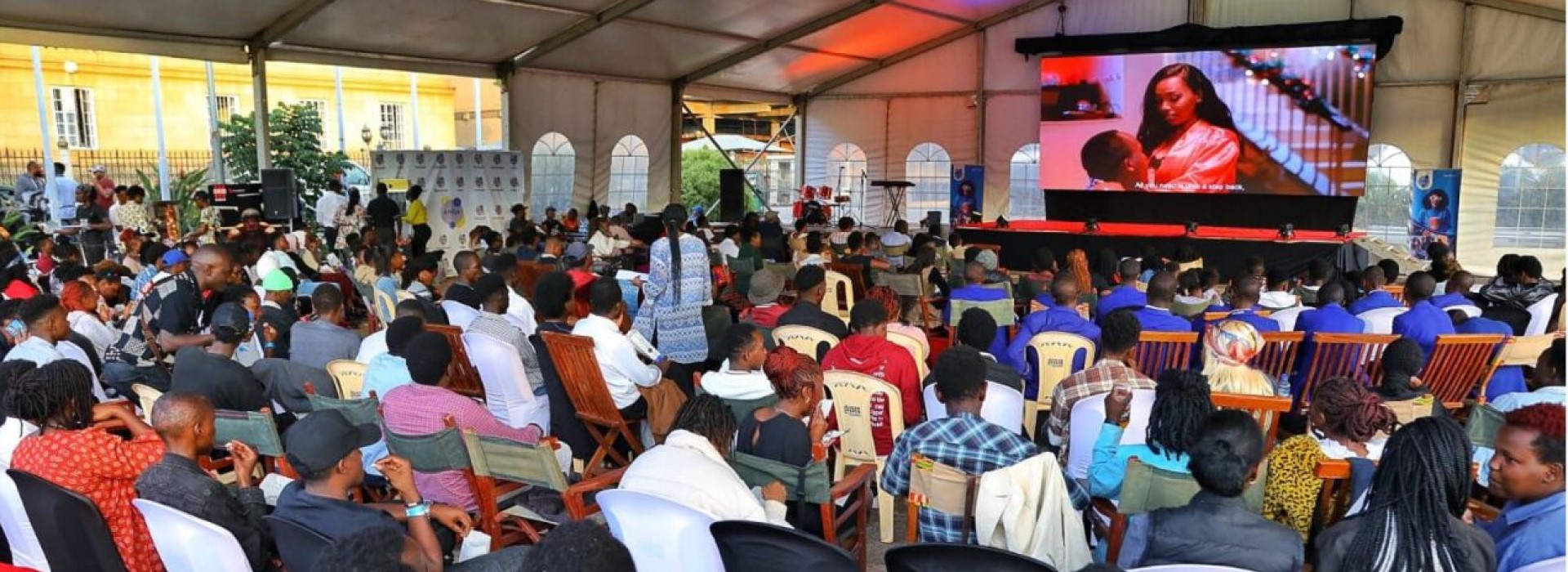
Growing demand for films ‘Made in Africa’
Together with international partners from the world of film, such as the public-benefit organisations Media Education Babelsberg and Some Fine Day Pix, GIZ is supporting the film sector in Rwanda and Kenya in creating jobs for young people. On behalf of the German Federal Ministry for Economic Cooperation and Development (BMZ), it has also helped set up the Digital Film School Africa in partnership with the association Weltfilme e.V. and film schools in Ghana. This digital learning platform offers young creatives in Africa the opportunity to gain qualifications in film production, scriptwriting and documentary films.
Demand for films ‘Made in Africa’ is growing. Victor Chudal-Linden, Project Manager at GIZ explains: ‘Economically, the film industry is one of the fastest-growing sectors on the African continent and a significant driver of the digital transformation.’ According to UN estimates, the African film industry has the potential to employ 20 million people and generate annual sales of USD 20 billion.
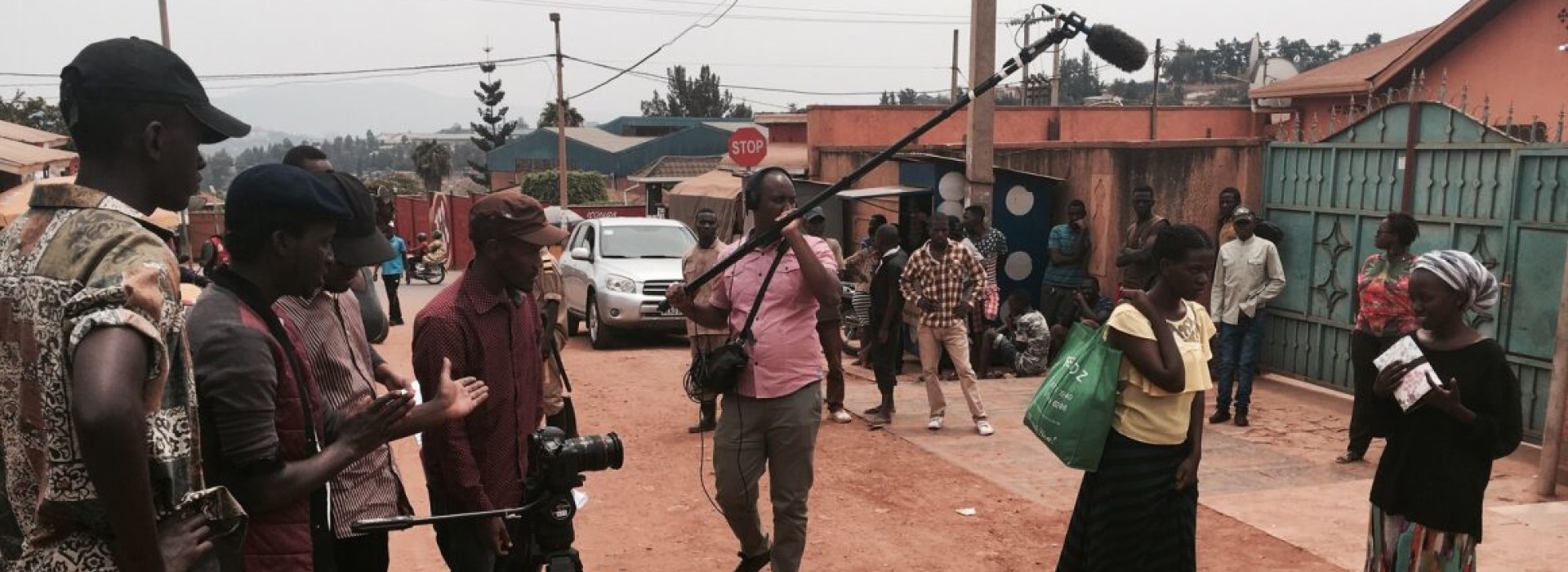
Learning about the lives of ‘others’
This isn’t just about jobs and digitalisation. Films play a role in forming identities, views and values. ‘It’s important for people to have the opportunity to make and share films themselves, particularly in their own language,’ Chudal-Linden explains. ‘Films strengthen social dialogue, they’re the digital campfire where stories are told. They show how “the others” live.’ People who watch films are more likely to empathise, respect other lifestyles and value diversity.
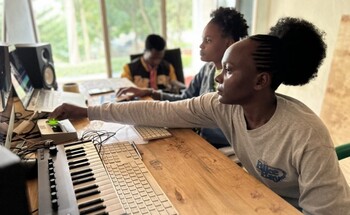
To take full advantage of all these opportunities, the Kenya Film Commission and Rwanda Film Office are not only cooperating with GIZ on training experts, they are also bringing in expertise to set up sustainable, inclusive and fair promotional programmes. Both have already run pilot film promotion competitions which financially supported over 40 film projects in Kenya and Rwanda. This brought them valuable experience for future film promotion.
‘Economic prosperity, cultural identity’
Until recently head of the national development agency RDB, Clare Akamanzi has no doubt that this approach will pay off for Rwanda: ‘We remain committed to fostering the development of this vital industry which plays a crucial role in driving our nation’s economic prosperity and cultural identity.’
